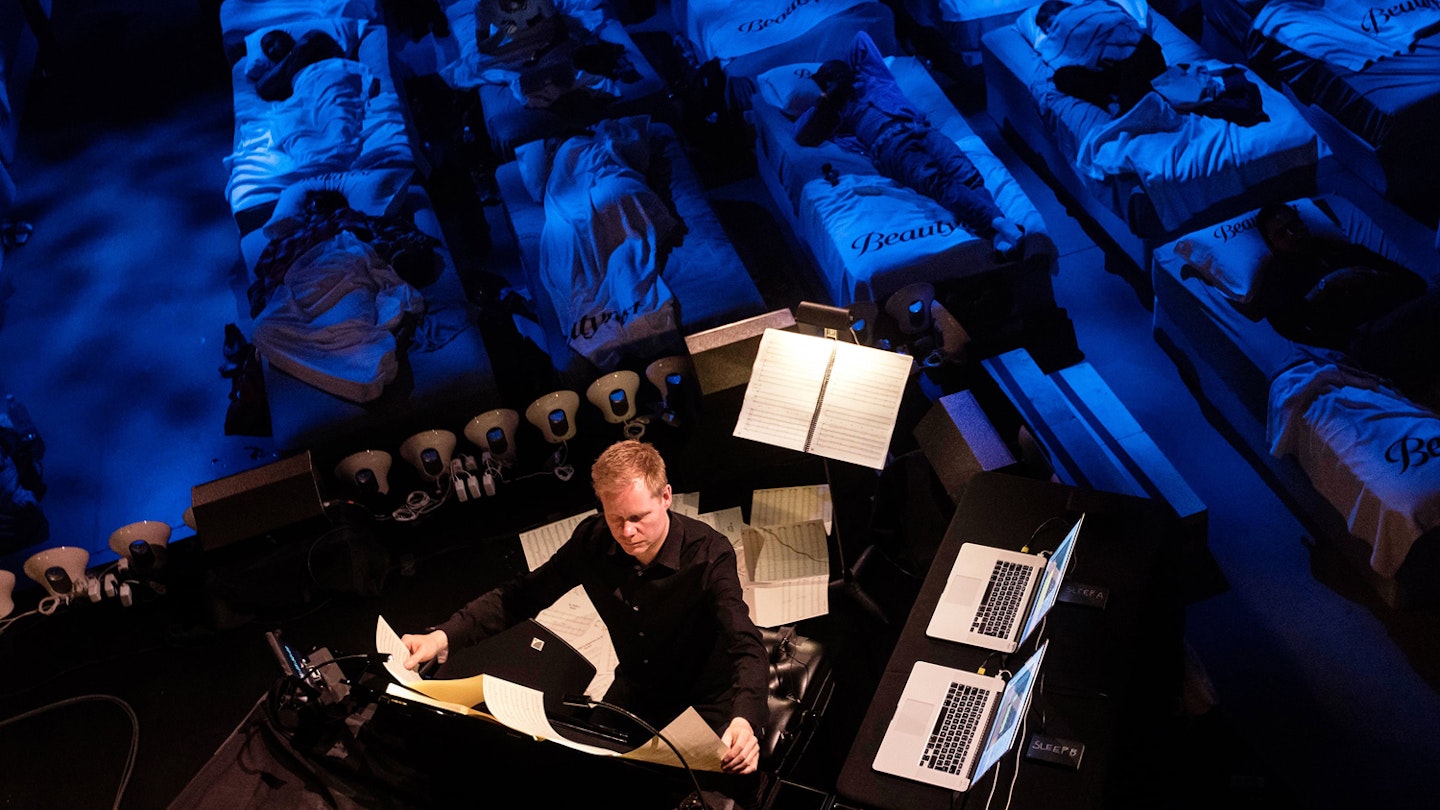It almost feels strange to say that a documentary about an ambient album designed to make you sleep is among the more arresting films of this year. Max Richter’s Sleep fascinates through its emulation of the album’s dreamy, wandering tones, the camera freely drifting over nature, the city, people connecting and lying in isolation, the imagery linked by dissolves. As he claims in the film, Richter intended the unprecedented, eight-hour long concerts (the main subject of the film) to be a sort of anthropological study, and director Natalie Johns reflects this by examining the audience as much as she does Richter. The ongoing ‘Sleep’ concerts were a peculiar project — set up with cots under the open night sky, audiences free to engage with the experience however they wanted. The album itself is a free-flowing and wondrous composition, an “eight-hour lullaby” that looks to experiment with how people interact with music in an unconscious or subconscious state.
Richter makes for an appropriately relaxed but nonetheless interesting subject, one who is direct and unpretentious about his project. It’s also quite a personal portrait, discussing his family’s past financial struggles and the difficulty of balancing the needs of a family with a career that’s not always lucrative. That honesty demystifies the project, the portrait of Richter as a human fitting in with the humanist focus of ‘Sleep’. But director Natalie John doesn’t solely concentrate on the ideas and anecdotes of the musician; the film capitalises on Richter and his creative partner (and spouse), BAFTA-winning filmmaker Yulia Mahr’s, idea of the ‘Sleep’ project as a means to connect. She does this simply by expanding the scope of her interview subjects beyond those in Richter’s inner circle, looking at the feelings and then inner lives of the concertgoers as well. Such exploration, so much more than a document of the creation of a classical concert, will leave you wide awake.
